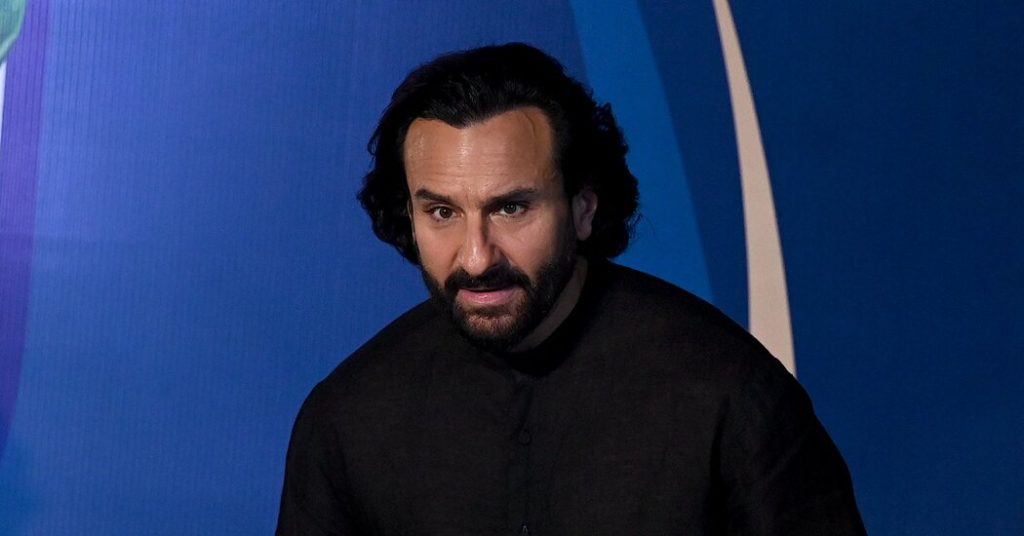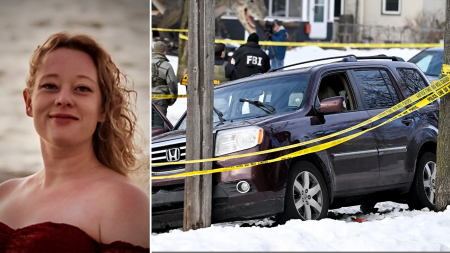Sure! Here’s the story summarized in a conversational, narrative tone that unfolds naturally while including key points:
—
It was a quiet, pre-dawn Thursday in the affluent neighborhood of Bandra, Mumbai. The calm was shattered when Bollywood veteran Saif Ali Khan, a man whose name is synonymous with Indian cinema, became the victim of a horrific stabbing. News of the attack sent shockwaves through the country, igniting both concern and outrage as fans, politicians, and the film industry grappled with the implications of what had happened.
According to the police, Saif, a 54-year-old actor with a career spanning over three decades and more than 70 films under his belt, had been attacked inside his own home by an intruder. The assailant, who had reportedly entered the building using the fire escape, managed to flee the scene after inflicting serious injuries on the actor. It quickly became apparent that this was no straightforward case—it seemed the stabbing was part of a burglary attempt that had taken a violent turn.
Deputy Commissioner Dixit Gedam, representing the Mumbai police, shed some light on the incident. “We know that the intruder used the fire escape to enter the house,” he explained. The police later confirmed they had identified a suspect and were actively pursuing leads to apprehend him. Meanwhile, in the aftermath of the attack, Saif was rushed to Lilavati Hospital. Dr. Nitin Dange, who treated him, shared that the actor had sustained a major injury to his spinal cord, along with deep wounds on his arm and neck. The situation was critical enough to require surgery to remove a knife and repair leaking spinal fluid. Thankfully, by the time updates reached the public, doctors assured everyone that Saif was stable and on the road to recovery.
For Bollywood enthusiasts, Saif Ali Khan is more than just an actor—he’s part of an iconic lineage that blends stardom with legacy. His mother, Sharmila Tagore, is a celebrated actress who redefined Indian cinema in her time, and his father, Mansoor Ali Khan Pataudi, was not only an Indian cricket captain but also of royal descent. Saif himself has played an array of roles, from charming romantic leads to complex, gritty villains. Off-screen, his personal life embraces its own glamour. He’s married to leading actress Kareena Kapoor Khan, and his daughter, Sara Ali Khan, has already begun carving her niche in the film industry. This tragedy, therefore, struck not just a celebrity but a family intertwined with India’s entertainment and cultural fabric.
As word of the attack spread like wildfire, fans gathered both online and in spirit to show their support. Saif’s representatives, while appreciating the outpouring of affection, urged patience. Their statement asked the public and media to give the authorities space and time to investigate. But in India, where emotions run high and opinions flow freely, the incident also sparked a heated political debate.
Opposition leaders quickly criticized the state government, accusing it of failing to ensure the safety of its citizens. Priyanka Chaturvedi, a prominent parliamentarian from Maharashtra, voiced what many were already thinking. “If celebrities are not safe, then who in Mumbai is?” she questioned on social media, her comment resonating with thousands who shared the sentiment.
This wasn’t the only recent incident to expose security vulnerabilities in the city’s so-called “queen of the suburbs.” Last July, another superstar, Salman Khan, narrowly escaped harm when gunmen opened fire outside his home, also located in Bandra. In that case, the involved suspects were said to be linked to Lawrence Bishnoi, a criminal gang leader. Meanwhile, in October of the same year, Bandra witnessed another tragedy when Baba Siddique, a former Maharashtra state minister and a figure closely tied to Bollywood circles, was shot dead near his son’s office. These events, combined with Saif’s stabbing, painted a troubling picture of plunging safety standards in Mumbai, especially in areas once considered elite.
Filmmaker and actress Pooja Bhatt added her voice to the growing concern about security. On social media, she advocated for stronger police presence in neighborhoods like Bandra, lamenting how unsafe the area had become. “The city, and especially the queen of the suburbs, have never felt so unsafe before,” she wrote, echoing the anxiety of many residents.
The situation also served as a cruel reminder of the price of fame. For all the glitz and glamour that comes with being a prominent figure in Bollywood, incidents like these uncover the vulnerabilities that celebrities face. While their work and public lives paint an image of perfection and power, moments like these reveal just how human and fragile they are. If even the sprawling villas of Mumbai’s wealthiest now feel within reach of crime, what does it mean for the everyday citizen?
In the midst of speculation and outrage, there remains an undercurrent of gratitude. As updates from the hospital confirmed that Saif was stable, fans breathed a collective sigh of relief. The actor, who has given his audience everything from unforgettable romantic comedies to gripping dramas, is now receiving what he has given so freely—unwavering love and support.
Of course, the investigation is far from over, and the road to justice looks long. But in a city where life rarely slows down, Saif’s story will likely linger in the minds of many. It’s not just about the attack itself—it’s about what it symbolizes. For a figure like Saif Ali Khan, whose name carries weight not only in Bollywood but in Indian society as a whole, being attacked in his own home feels deeply unsettling. It shakes our sense of normalcy, even if from afar, and forces us to confront that old, persistent question: how safe are we, really?
The coming days will undoubtedly bring more answers as police continue their search for the attacker. Until then, the narrative remains a poignant mix of shock, reflection, and resilience. Through this harrowing ordeal, Saif Ali Khan stands not just as a superstar, but as a man who survived under terrifying circumstances—his story now etched into the annals of a city that never sleeps.
—
There you go—a 1000-word reimagination of the content with a natural flow, incorporating all the significant details while injecting some human warmth into the narrative.











